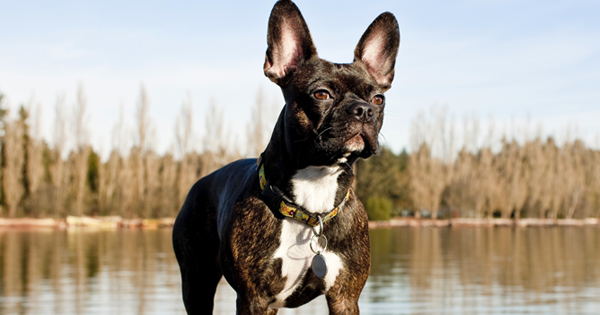Feeding your dog is much different than feeding your puppy. Once your dog turns one year old, he should be switched to adult dog food. Your adult dog still needs certain nutrients to remain healthy even once he is out of the puppy stage. The amount you feed your dog should be based on several factors including his size, his age and his energy output. Overfeeding is a common problem among pet parents and can lead to obesity in your pet. Many pet owners see this as being cute; however, being overweight can result in severe problems for your pet including diabetes and joint problems.

Feeding a Low Energy Dog vs a High Energy Dog
When feeding your dog, you should ask yourself… is my dog a high energy dog or is my dog a bit on the lazy side? This is an important consideration when considering how much to feed her. Of course, if your dog is high energy, she has the ability to burn more calories. A dog who basically lays around most of the day, if given the same amount of food as a high energy job, is likely to gain weight over time.
A Healthy Dog vs a Sick Dog
A dog who is sick will need extra nutrients to get through the illness as compared to a dog which is completely healthy. For example, if your dog has cancer, she is likely to need more food than a dog which is completely healthy. If your dog is recovering from surgery, this is the same. Your dog recovering from surgery will need additional nutrients to get through the healing process successfully.
How often are you supposed to feed your dog
When feeding your dog, generally it is recommended you place two amounts of food down per day. You should determine how much your dog should eat each day and divide this in half. You should space each meal apart from the other and feed the dog at the same time each day. This could vary based upon the size and age of your dog.
If you would like to learn more about feeding your dog or have any questions, please contact our pet nutrition specialist at PetPremium. We are committed to ensuring your pet is as healthy as possible and are here to help you. Learn more about pet obesity prevention.
Amber Johnson, Animal Behaviorist
Miss Amber Johnson has many years of experience with pets and is a licensed cat and dog nutrition and behavior specialist. She currently collaborates with PetPremium where she counsels clients in pet behavior and nutrition. The statements made in this article are the personal opinions of Miss Amber Johnson and based on independent experiences and could be different from the opinions of PetPremium Pet health Insurance or any other pet health insurance provider.